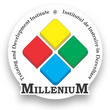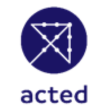- Detalii
- Categorie: Alegeți secțiunea
Extended Deadline - UNPD Moldova: Scientific Content Consultants - Enhancing Democracy in Moldova through Inclusive and Transparent Elections
Informațiile prezentate în articolul de mai jos pot să nu mai fie actuale sau să nu mai reflecte activitățile și programele curente. Anunțul este păstrat în arhivă pentru a asigura transparența și accesul public la informațiile despre inițiativele și proiectele implementate anterior.
Background
Electoral support and capacity development are part of UNDP’s democratic governance assistance worldwide, through which UNDP helps nations build democratic frameworks to improve representation, accountability, and transparency for the benefit of citizens.
UNDP has a long-standing partnership with the Central Electoral Commission (CEC) and the Center for Continuous Electoral Training (CICDE) aiming at advancing the democratic electoral processes in Moldova by consolidating the transparency and efficiency of elections’ management, modernization of electoral IT solutions and enhancing the inclusiveness and participation of voters. This partnership, which spans over 10 years, resulted in the establishment of strong professional institutions, development of a modern State Automated Information System “Elections” (SAISE), the enhancement of the State Register of Voters’ accuracy and the design and implementation of effective long-term civic and voter education instruments.
Throughout the last electoral cycles, CEC and CICDE due to the continuous UNDP’s support have demonstrated strengthened capacities and, despite challenges and persistent financial limitations faced by the institutions, delivered “well-administered elections” as attested by OSCE/ODIHR Observation Missions.
Since 2017, the Project "Enhancing democracy in Moldova through inclusive and transparent elections” supports the Central Electoral Commission to enhance the transparency and inclusiveness of the electoral process in Moldova by ensuring a more independent and credible electoral administration and better informed and pro-active citizens. Successively, on 1st of August 2020, the second phase of the Project “Enhancing Democracy in Moldova through Inclusive and Transparent Elections – EDMITE” has started. The overall goal of the Project is to achieve an enhanced integrity, transparency, and inclusiveness of the electoral process in Moldova by ensuring a more independent and credible electoral administration and better informed and pro-active citizens. Hence, the project has an outward-oriented approach, focusing on the electoral process and all relevant actors (CEC, CICDE, ministries and government agencies, educational institutions, civil society).
Building on the sustainable results achieved during the first phase of the Project implementation (2017 – 2020), the objectives of the current Project phase (2020 – 2023) are: 1) Enhance the inclusiveness of the electoral process by increasing the functional and technical capacities of the State Automated Information System “Elections” (SAISE); 2) Enhance the political participation of citizens by setting up and implementing the voters’ information and civic education programmes; 3) Strengthen the capacity for effective and coherent oversight and monitoring on political party financing; and 4) Improve the legal and regulatory framework to respond to the EOM recommendations.
To achieve the objectives and ensure the sustainability of results, the Project will further support the CEC and CICDE in implementing extensive civic education and voter information programs in accordance with their strategic documents: 2020 – 2023 CEC Strategic Development Plan and the 2020 – 2023 CICDE Strategic Development Plan. These interventions will include the institutionalization and scaling-up of programs dedicated to the teachers as electoral education promoters and school councils’ elections as a tool to promote greater civil understanding and participation. Moreover, the Project will continue its partnership with the Ministry of Education, Culture and Research to develop a dedicated curriculum/program on voter education for schools and universities.
Scope of work
OBJECTIVE AND EXPECTED OUTPUTS
The Project intends to contract 2 (two) Scientific Content Consultants to assist the textbook authors in the development of the school textbook on electoral education (hereafter the Consultant). The Consultants shall provide professional support and expertise throughout the development phases of the textbook, as well as the theoretical basis for developing the thematic block of the lessons contained in the said textbook, which shall be based on the already developed and approved school curriculum.
Specifically, the Consultant will have the following responsibilities:
Conducting research and providing scientific advice and expertise in the field of elections and democratic processes, developing the conceptual design of the textbook and that of the lesson.
Put together the theoretical basis aiming to contribute to the development of the thematic block of lessons from the four modules of the said textbook:
Democracy and civic responsibility
Inclusive electoral process
Information and participation in elections
Electoral culture - part of the democratic culture
Provide feedback on the lessons developed by the authors – validation of contents.
Prepare a final comprehensive report documenting all the conducted activities, focusing on the results achieved, issues and challenges of the development process, lessons learned and recommendations (the report shall contain all required evidence detailing down the work done and confirming the finalization of the assignment).
For detailed information, please refer to Annex 1 – Terms of Reference.
Requirements for experience
Academic Qualifications and Achievements:
Master’s degree or higher in education or other relevant fields for this assignment (i.e. Social Science, Law, Journalism, Political Science, Public Administration, or other). Additional academic qualifications and achievements will be considered a strong advantage.
Experience and knowledge:
At least 3 (three) years of demonstrated experience in working in education field or other relevant fields for this assignment;
Proven experience (at least two examples) preparing research materials in the process of elaborating textbooks, didactic materials, or other related assignments;
Previous experience of work with UNDP, ISFED and/or other development partners is an advantage.
Competencies:
Knowledge of standards in children education and educational material;
Demonstrated experience in supporting the development of at least two (2) textbooks (for pupils), academia books, articles, research, assessments and other similar assignments (reference/links should be included in his/her CV or Cover letter);
Excellent written communication, creative, research and analytical skills;
Strong knowledge in using IT tools (Microsoft package, Mac package) is required.
Knowledge and sound understanding of election area (CEC roles and responsibilities, as well as Government institutions, NGOs and international donors working in this field);
Experience in mainstreaming gender and human rights aspects is a strong advantage;
Fluency in Romanian and Russian languages (verbal and written) is a must. Knowledge of English will be considered as an advantage.
Desired additional skills and competencies
Personal qualities:
Strong sense of initiative and ability to work independently;
Proven commitment to the core values of the United Nations, in particular respecting differences of culture, gender, religion, ethnicity, language, age, HIV status, disability, and sexual orientation, or other status;
Excellent research, analytical and writing skills;
Responsibility, creativity, flexibility and punctuality, ability to meet deadlines and prioritize multiple tasks;
Demonstrated interpersonal and diplomatic skills, as well as the ability to communicate effectively with all stakeholders and to present ideas clearly and effectively.
The UNDP Moldova is committed to workforce diversity. Women, persons with disabilities, Roma and other ethnic or religious minorities, persons living with HIV, as well as refugees and other non-citizens legally entitled to work in the Republic of Moldova, are particularly encouraged to apply.
Documents to be included
Interested consultants must submit the following documents/information to demonstrate their qualifications:
Offeror's Letter confirming interest and availability;
Technical proposal (incl. brief description of experience, approach, and methodology for the completion of the assignment);
Financial proposal (in USD) specifying a total lump sum requested for the assignment specified in the Terms of Reference;
Personal CV and at least 3 references.
Incomplete applications will not be considered.
Financial proposal
Lump sum contracts
The financial proposal shall specify a total lump sum amount, and payment terms around specific and measurable (qualitative and quantitative) deliverables. Payment will be made upon the successful completion of the tasks assigned and submission of the assessment report. Payments are based upon output, i.e. upon delivery of the services specified in the TOR. To assist the requesting unit in the comparison of financial proposals the financial proposal shall include a breakdown of this lump sum amount (including fee, taxes, communication costs, travel, per diems, and number of anticipated working days).
Application Deadline: 5 August 2022, 16:00 (GMT+2:00)
Contacts:
Mr. Petru Puscas, petru.puscas@undp.org








